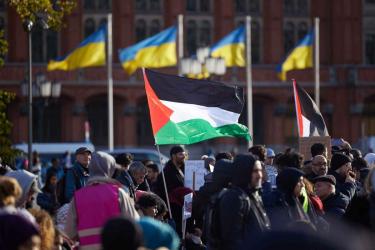BRICS
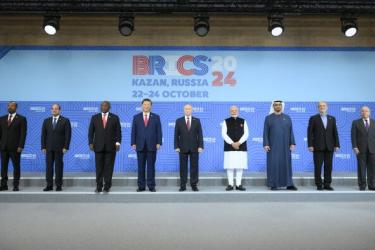
The BRICS are the new defenders of free trade, the WTO, the IMF and the World Bank
Eric Toussaint on why the BRICS do not offer an alternative financing and trade model for the Global South.
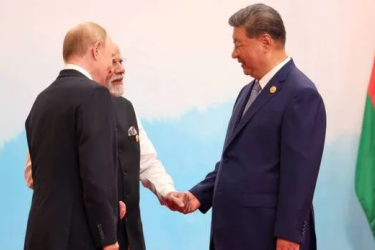
Dispelling the multipolar myth
Patrick Bond on why BRICS is not a threat to imperialism and an “anti-polar” alternative is needed.
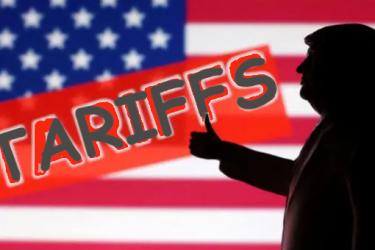
Trump is looking to consolidate his populist base without challenging corporate power
Sam Gindin — Absent a left alternative, the US Empire decline’s is just as likely to increase nationalism and its dangers, from naïve working-class alliances with their bourgeoisies to devastating wars.
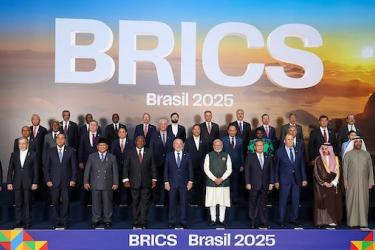
Why are the BRICS countries not condemning the ongoing genocide in Gaza?
Eric Toussaint analyses the practical policies of the BRICS countries and the institutions they have established towards Israel and its genocide in Gaza.

Long wave theory, globalisation’s end, and the coming crises: An interview with William Jefferies
William Jefferies explores the usefulness of long wave theory for understanding the current moment, how globalisation reshaped the world economy, and the coming period of crisis.
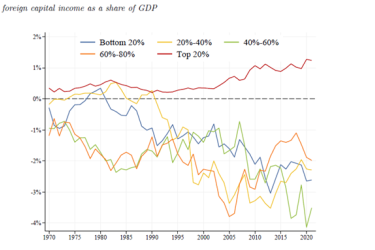
Imperialism: Now we have some numbers
Renfrey Clarke — In the view of Marxists, the rift that divides the world is a direct result of imperialism, whose core is always material and economic.

BRICS and Israel’s ongoing energy supplies
Michael Karadjis — Some of the states that have been most critical of Israel’s actions are also the ones who supply the majority of its oil and coal.
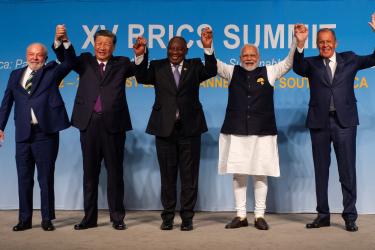
Multi-polarity: A new alignment?
Jerry Harris — Some see multi-polarity as a new stage of non-alignment, and even the creation of an anti-imperialist bloc. But the economic and political elites of the Global South are too deeply tied to transnational capitalism to be truly independent.
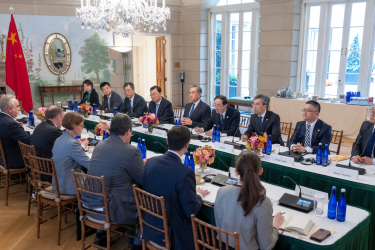
The ‘multipolar world’: A euphemism to support multiple imperialisms
Frederick Thon Ángeles, Manuel Rodríguez Banchs and Jorge Lefevre Tavárez put forward 18 ideas about the new world order, the dangers of rising inter-imperial conflict, and the need to build an independent pole anchored in the international working class.
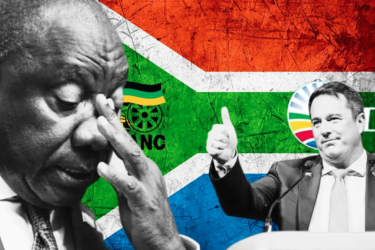
South Africa’s ‘Government of Neoliberal Unity’ is constructed on shaky ground
Patrick Bond — Given declining living standards, an elite transition will not stick nearly as well as Nelson Mandela’s 1994-99 reign. It may be a matter of just months before the centre can no longer hold.
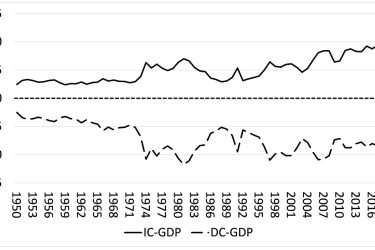
Michael Roberts: Further thoughts on the economics of imperialism
Michael Roberts — Imperialism can be quantified in economic terms: it is the persistent transfer of surplus value to the rich countries from the poorest countries of the world. This process developed some 150 years or so ago and remains.
